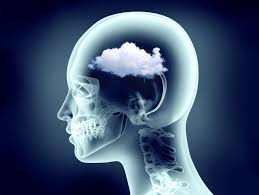Banishing Brain Fog: Reclaim Clarity and Focus!
Tired of brain fog? Discover the causes, symptoms, and solutions to regain mental clarity and boost your concentration. Practical and effective advice.
WELLNESSHEALTHBLOG-LIST
11/1/20243 min read


Ah, brain fog... that unpleasant feeling of having your head in the clouds, lacking focus and mental energy. We've all experienced it at some point, whether after a sleepless night, a period of intense stress, or simply going through a phase of fatigue.
But when this feeling persists and impacts our daily lives, it's time to take charge!
In this article, we tell you everything about brain fog: its causes, its symptoms, and above all, the solutions to get rid of it and regain optimal mental clarity. Ready to get your brain back in top shape? Let's go!
In short:
Brain fog is a feeling of mental confusion that affects concentration and memory.
Its causes are multiple: stress, lack of sleep, unbalanced diet, certain diseases...
Symptoms include: difficulty concentrating, frequent forgetfulness, mental fatigue, confusion...
Solutions exist to dispel brain fog: improve your lifestyle, manage your stress, consult a health professional if necessary.
Contents:
What is brain fog?
Causes of brain fog
Symptoms of brain fog
How to regain mental clarity?
FAQ on brain fog
Conclusion
What is brain fog?
Imagine trying to focus on an important task, but your mind keeps wandering. You have trouble remembering simple things, you feel mentally exhausted, and you severely lack clarity. That's brain fog!
It's not a disease in itself, but rather a set of symptoms that indicate your brain is running in slow motion.
Causes of brain fog
Brain fog can have multiple origins. Among the most common are:
Chronic stress: When we are stressed, our body produces cortisol, a hormone that, in the long term, can disrupt brain function.
Lack of sleep: Sleep is essential for memory consolidation and brain cell regeneration. Chronic lack of sleep can therefore lead to persistent brain fog.
An unbalanced diet: Our brain needs essential nutrients to function properly. A diet high in refined sugars, saturated fats, and processed foods can hinder its performance.
Certain diseases: Some conditions such as depression, anxiety, fibromyalgia, chronic fatigue syndrome, or thyroid disorders can also cause brain fog.
Dehydration: Lack of hydration can affect concentration and cognitive functions.
Excessive consumption of alcohol or drugs: These substances can disrupt brain function and lead to brain fog.
Symptoms of brain fog
Brain fog manifests itself through various symptoms, including:
Difficulty concentrating: Impossible to focus on a task, even a simple one.
Frequent forgetfulness: Forgetting appointments, names, where you put your keys...
Mental fatigue: Feeling mentally exhausted, even after a good night's sleep.
Confusion: Difficulty thinking clearly and making decisions.
Lack of motivation: Difficulty engaging in activities, even those you usually enjoy.
Irritability: Being more easily irritable and susceptible.
How to regain mental clarity?
Fortunately, there are solutions to dispel brain fog and regain optimal mental clarity. Here are some tips:
Improve your lifestyle: Get enough sleep, adopt a balanced diet rich in fruits, vegetables, and omega-3s, engage in regular physical activity, and stay properly hydrated.
Manage your stress: Learn relaxation techniques such as meditation, deep breathing, or yoga.
Stimulate your brain: Read, learn a new language, play board games, do crossword puzzles...
Consult a healthcare professional: If brain fog persists despite your efforts, it is important to consult a doctor to identify the underlying causes and get appropriate treatment.
FAQ on brain fog
1. Is brain fog serious?
Brain fog is generally not serious in itself, but it can be a symptom of an underlying condition. It is therefore important to consult a doctor if symptoms persist.
2. How long does brain fog last?
The duration of brain fog varies depending on its cause. It can be temporary and disappear in a few days or weeks, or persist for several months or even years.
3. Is brain fog related to age?
Brain fog can affect people of all ages, but it is more common in older adults.
4. Are there any medications to treat brain fog?
There is no specific medication to treat brain fog. Treatment will depend on the underlying cause.
Conclusion
Brain fog is an unpleasant sensation that can impact our daily lives. Fortunately, by adopting a healthy lifestyle, managing stress, and consulting a healthcare professional if necessary, it is possible to regain mental clarity and boost cognitive performance.
